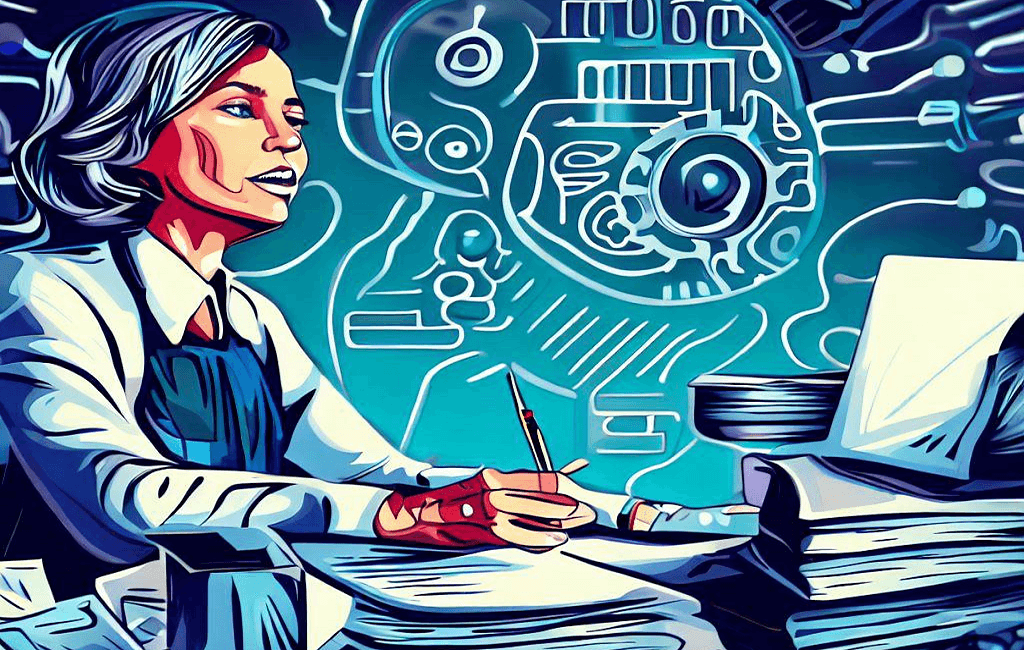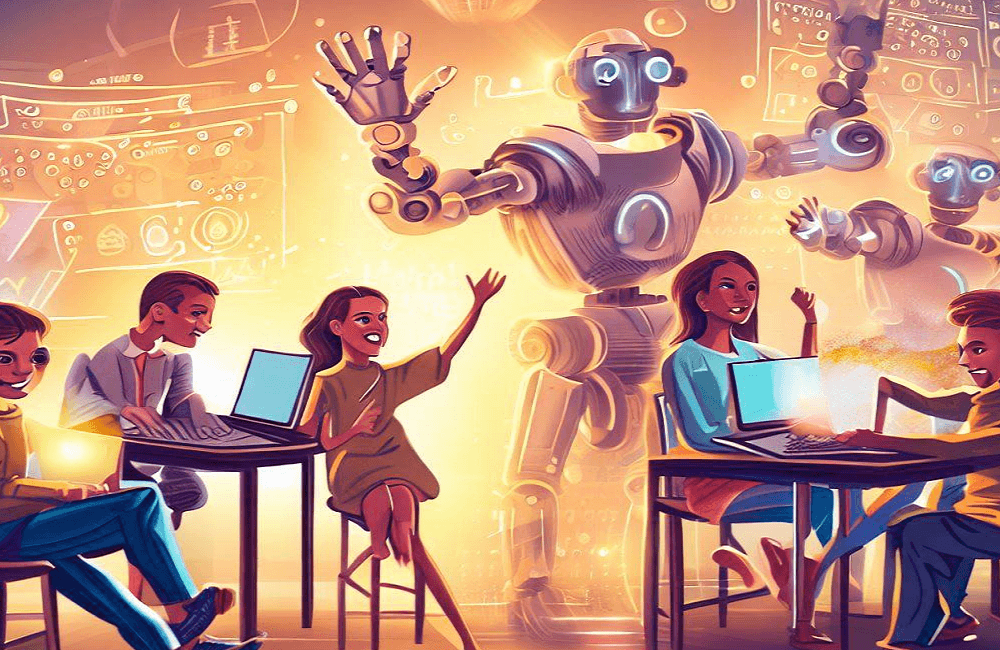{tocify} $title={Table of Contents}
Introduction
Artificial Intelligence (AI) is a rapidly evolving technology that involves the development of intelligent machines that mimic human thought processes. The impact of AI has been felt across various industries, from automotive manufacturing to healthcare. However, there is also significant potential for AI to revolutionize the education industry. In this article, we'll explore the different applications of AI in education, its benefits, ethical implications and challenges, and future prospects.
The Need for Artificial Intelligence in Education
Problem: The education industry is plagued with several challenges, including poor student engagement, lack of individual attention, inconsistent assessments, and repetitive administrative tasks.
Solution: AI can address these problems by providing personalized learning experiences, automating routine administrative tasks, enabling interactive simulations, and real-time feedback. Using supervised and unsupervised machine learning algorithms, AI can customize the learning pace and style to cater to individual student needs.
Applications of AI in Education
Personalized Learning
AI algorithms can analyze data on students' learning patterns, pace, strengths, and weaknesses, to tailor the curriculum accordingly. This also allows for ongoing assessments to monitor the student's progress continually.
Robo Teachers
AI-powered robots have been successfully deployed in classrooms to assist teachers and enable individualized learning. Robo Teachers can provide content beyond textbooks and provide a more engaging approach to education.
Intelligent Tutoring Systems
Intelligent tutoring systems use machine learning to monitor and analyze individual student progress, prompting feedback to address any misconceptions and generate interactive simulations to enhance knowledge retention.
The Benefits of AI in Education
Increase Engagement
AI can increase student engagement by providing interactive and personalized content. This content will keep students engaged and interested depending on their interest.
Enhanced Learning
AI-powered systems can provide simulations and real-time feedback, making lessons more engaging, interactive, and accessible.
Reduce Workload
AI automation can reduce administrative tasks significantly. Automating grading, scheduling, attendance taking, and other administrative tasks means teachers can focus on teaching, eliminating repetitive tasks.
AI in Classroom Management
Classroom Behavior Management
AI-powered tools can monitor student behaviour and reduce disruptions in the classroom by providing early alerts on negative behaviour patterns.
Automating Administrative Tasks
AI can reduce educator workload by automating administrative tasks such as grading, lesson planning, scheduling, record keeping, and other routine tasks.
Attendance Taking
AI automation can accurately and quickly take attendance records, saving time and reducing administrative workload, making it possible for teachers to implement better attendance systems.
Ethical Implications of AI in Education
Bias in AI
AI algorithms can reflect the biases present in the data fed into them, leading to discrimination in deployment. AI manufacturers must develop ethical guidelines and use diverse representation in training data to avoid discrimination in the classroom.
Job Losses
AI integration into the education industry could raise concerns about job loss in the sector, especially for administrative tasks. However, as AI eases educators' responsibilities, it presents new work opportunities for educators.
Privacy Concerns
The AI integration could raise privacy concerns with the collection, storage, and usage of personal data from students. Thus, schools must develop privacy policies and secure these data to prevent unauthorized access and ensure privacy.
Challenges of Implementing AI in Education
Financial Constraints
There is a need to provide sufficient funding for AI implementation in classrooms and training for educators to maximize AI's benefits.
Complicated Implementation Process
Integrating AI into the educational system presents a different set of challenges, including resistance from stakeholders, technology integration difficulties, and significant pedagogical shifts.
Resistance from Stakeholders
AI adoption in the classroom will require cooperation from education policymakers, teachers, and other stakeholders. This could be a significant challenge, given the significant changes involved.
Future of AI in Education
Trends in AI's Developmental Roadmap
The application of AI into education could enable educators to leverage real-time feedback and big data analysis to enhance student learning experiences.
Collaborative E-learning Policies
AI can provide a more collaborative, interactive education policy to boost student engagement with the content while reducing isolation in virtual learning environments.
Full Automation in Education
Full automation of education is a possibility, given current developments in AI technology. The question is not whether, but when, full automation will be realized.
Summary
AI in the education industry offers innovative solutions to current educational challenges. AI offers personalization, engagement, automated administrative tasks, and real-time feedback. However, ethical considerations should be taken. Financial constraints, complicated implementation processes, and resistance from stakeholders are among the challenges associated with AI adoption in education. The future of AI in education is promising, and trends are geared towards creating a collaborative, interactive education policy that fully leverages the technology's capabilities.
-----
Article composed by:
Sharanu Gogi, Teacher
You May Also Like 👇
Loading...








